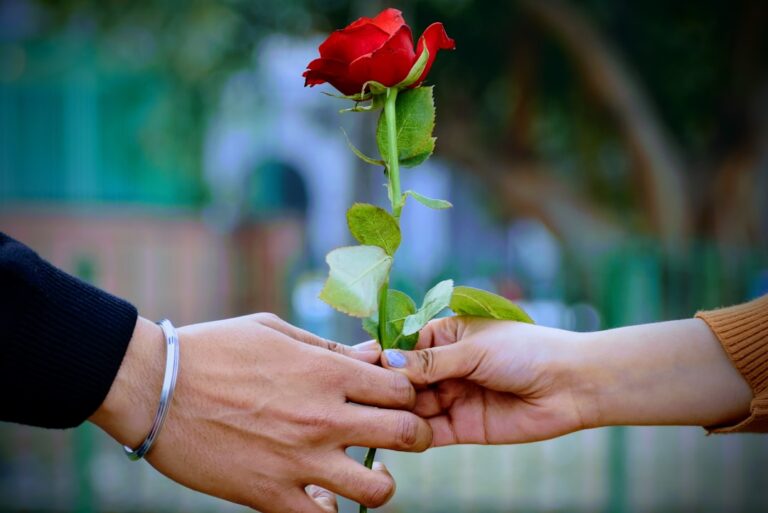In our interconnected world, relationships form the foundation of our personal well-being and sense of belonging. Yet, it’s not uncommon to find ourselves pursuing those who seem indifferent or even unavailable, whether in friendships, romantic partnerships, or family ties. The phrase “choose people who choose you” carries profound wisdom; it invites us to rethink who we invest our energy in and why. By prioritizing mutual connection, respect, and effort, we can cultivate more fulfilling, authentic relationships and enhance our own mental health.
Understanding the Importance of Mutual Choice
Many of us have experienced relationships where the emotional effort feels one-sided. Perhaps you’ve repeatedly reached out to a friend who never initiates, or found yourself chasing after the affection of someone who rarely reciprocates. Over time, these dynamics can lead to feelings of rejection, inadequacy, and exhaustion.
At its core, the principle of choosing people who choose you is about valuing mutual investment. Healthy, sustainable relationships are built on give-and-take, where both parties express care, effort, and interest. When we align ourselves with people who actively want to be part of our lives, we foster emotional security, self-respect, and joy.
Psychological Foundations: Why Do We Seek Unavailable People?
If choosing mutual relationships seems obvious, why do we sometimes gravitate toward those who don’t prioritize us? The answers lie in deep psychological patterns and societal messages.
Attachment Styles
Our early experiences with caregivers shape our attachment styles — the patterns by which we connect with others emotionally. Those with anxious or avoidant attachment tendencies might subconsciously seek partners or friends who mirror the unpredictability of early emotional experiences, hoping to ‘earn’ love or approval.
Low Self-Worth
If we struggle with self-esteem, we might subconsciously believe we don’t deserve unconditional love or attention. This belief can manifest as choosing emotionally unavailable people, validating our internal narrative of inadequacy.
Societal Narratives About Love
Popular culture often romanticizes the pursuit — the idea that love is about ‘winning over’ someone hard to get. While this creates compelling stories, it can set unrealistic or unhealthy expectations for how genuine relationships develop.
The Risks of One-Sided Relationships
Consistently investing in relationships where you’re not truly chosen can have significant consequences:
- Emotional Burnout: The constant effort without reciprocation can be draining, increasing stress and fatigue.
- Lowered Self-Esteem: When someone doesn’t value us, it can reinforce negative self-beliefs and impact self-worth.
- Stagnant Personal Growth: One-sided dynamics often leave little room for honest feedback or genuine support, stalling emotional growth.
- Increased Anxiety and Insecurity: The unpredictability of such relationships often breeds anxiety and the fear of abandonment.
Recognizing these risks is the first step toward choosing healthier, more affirming connections.
Benefits of Choosing People Who Choose You
On the contrary, surrounding yourself with mutually invested people offers a wealth of benefits for your mental, emotional, and even physical well-being:
- Enhanced Self-Worth: Being chosen reinforces the belief that you are worthy of love, respect, and attention.
- Emotional Security: Mutual relationships foster trust, comfort, and a sense of belonging.
- Increased Resilience: Supportive relationships provide a buffer against life’s stressors and challenges.
- Motivation and Growth: When we’re truly seen and valued, we’re more likely to pursue our goals and embrace personal development.
How to Recognize Who Chooses You
Sometimes, it can be challenging to distinguish between polite interest and genuine investment. Here are key signs that someone truly chooses you:
- They Initiate Contact: You don’t always have to reach out first. They make an effort to check in, invite you to events, or simply say hello.
- They Listen and Remember: They pay attention to what matters to you, remember details, and follow up on things you’ve shared.
- They Make Time, Not Excuses: Even with busy lives, they prioritize connecting with you when possible.
- They Respect Your Boundaries: Mutual choice includes respect — for your time, needs, and limits.
- They Offer Support: In tough times, they’re there with empathy and encouragement, not just during the good moments.
- They Celebrate Your Successes: Your achievements genuinely make them happy, and they’re not threatened by your growth.
If you’re experiencing most of these signs in a relationship, you are likely being truly chosen and valued.
How to Start Choosing People Who Choose You
Making the shift to prioritize mutual relationships can be transformative, but it may also feel uncomfortable or unfamiliar. Here are actionable steps to guide your journey:
1. Assess Your Current Relationships
- Reflect on which relationships feel reciprocal and which feel one-sided.
- Notice your emotions before, during, and after interactions — do you leave feeling uplifted or depleted?
2. Set Clear Boundaries
- Protect your energy by gently disengaging from those who consistently take without giving back.
- Practice saying no to invitations or obligations that don’t serve your well-being.
3. Cultivate Self-Compassion
- Remind yourself that everyone deserves to be chosen and valued, including you.
- Challenge the belief that your worth is tied to winning someone’s approval.
4. Communicate Your Needs
- Foster open, direct conversations with the people you care about, expressing your desire for mutual investment.
- Give others the chance to rise to the occasion — or to reveal their true colors.
5. Be Willing to Let Go
- If a relationship remains persistently one-sided despite your efforts, consider stepping back.
- Trust that letting go of draining connections creates space for healthier, more affirming relationships to enter your life.
The Role of Self-Love in Mutual Relationships
Often, the journey to choosing people who choose you begins with deepening your relationship with yourself. When you view your own needs, feelings, and aspirations as valid and important, you send a clear message — to yourself and others — about how you deserve to be treated.
This kind of self-love is neither selfish nor self-indulgent. Rather, it’s the foundation for all other relationships. By honoring your emotional boundaries and investing in your own well-being, you attract and recognize others who do the same.
Common Challenges and How to Overcome Them
Transitioning to a “choose people who choose you” mindset can bring up discomfort, especially if you’re breaking patterns that began in childhood or have existed for years. Here are some common stumbling blocks, and strategies to address them:
1. Fear of Being Alone
- The Challenge: It’s natural to worry that letting go of unfulfilling relationships will lead to loneliness.
- What Helps: Focus on quality over quantity. Even a handful of mutually invested relationships can offer profound connection and support.
2. Guilt or Obligation
- The Challenge: You may feel guilty for withdrawing from relationships, particularly with family or old friends.
- What Helps: Remember that self-care is not selfish. You can care about someone while also recognizing they’re not the right person to invest heavily in.
3. Fear of Missing Out (FOMO)
- The Challenge: Social media can foster the impression that everyone is deeply connected — except you.
- What Helps: Resist the temptation to compare your relationships to surface-level online images. Focus instead on nurturing the authentic connections you do have.
Strengthening Mutual Relationships
Once you’ve identified people who truly choose you, it’s important to invest in keeping these relationships strong and healthy. Here are a few ways to nurture mutual connections:
- Practice Active Appreciation: Regularly express gratitude for the people who show up for you.
- Prioritize Quality Time: Make time for genuine connection, even if it’s brief or virtual.
- Foster Open Communication: Share your thoughts, feelings, and needs honestly, and encourage your loved ones to do the same.
- Celebrate Each Other’s Successes: Show enthusiasm for each other’s achievements and milestones.
- Navigate Conflict Constructively: When disagreements arise, address them with empathy, openness, and respect.
By actively caring for these relationships, you lay the groundwork for enduring, mutually fulfilling connections.
What to Do If the Relationship Dynamics Change
Relationships are rarely static. Changing life circumstances, evolving interests, or personal growth can shift the dynamics of even the closest bonds. When you sense a change, try to approach it with curiosity and compassion:
- Check in with yourself: Are your needs still being met? Do you feel chosen and valued?
- Talk openly with the other person: Sometimes, temporary distance or stress causes a dip in mutual investment, and an honest conversation can clarify intentions and keep the bond strong.
- Accept natural ebb and flow: Not all relationships are meant to last forever. Sometimes, changing dynamics are a signal to transition the relationship to a different form — or to let it go.
The Ripple Effect: Inspiring Others to Choose Mutuality
When you embrace the practice of choosing people who choose you, you not only improve your own well-being — you become a model for healthy relationship dynamics in your community. By sharing your experiences and setting boundaries with compassion, you inspire others to seek mutually affirming connections as well.
This ripple effect can transform families, workplaces, friendships, and even larger social groups, as more people come to recognize the value of prioritizing those who actively choose, respect, and support them.
Conclusion: Embracing Your Worth in Relationships
Choosing people who choose you is a radical act of self-respect and emotional responsibility. It means acknowledging your value, setting healthy boundaries, and opening yourself to relationships that are nourishing and reciprocal. While the process can be challenging — especially if it means changing old habits or letting go of familiar, yet unfulfilling bonds — the rewards are profound. You’ll cultivate a support network rooted in genuine care, enhance your self-esteem, and create more space for authentic growth, joy, and connection.
Remember: You are worthy of being chosen. By investing in relationships where this truth is honored, you give yourself and others the greatest gift — the chance to thrive together.




